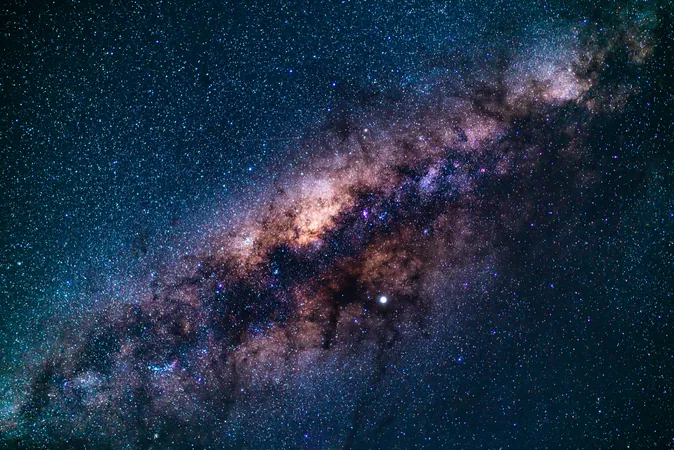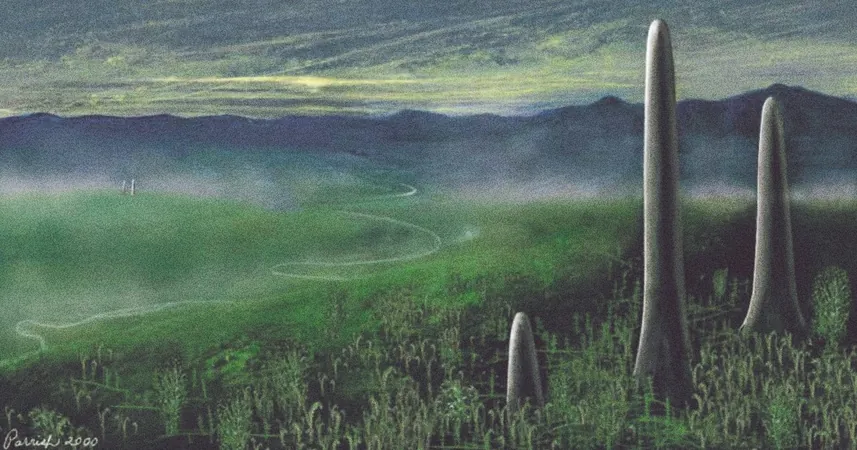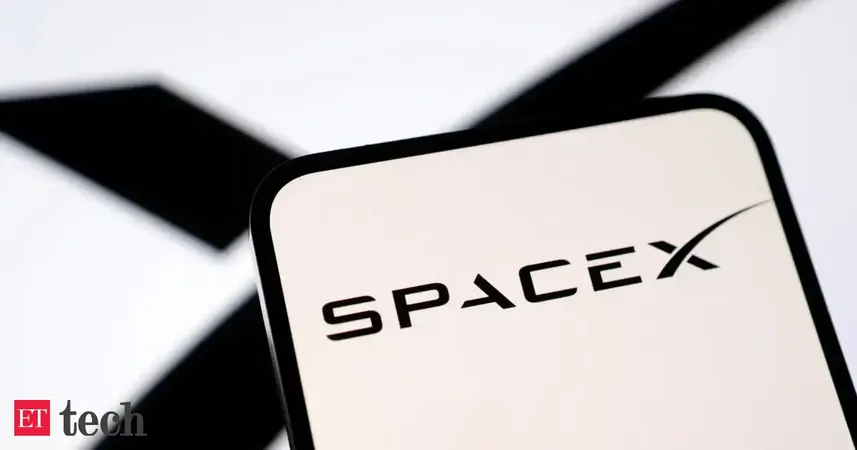
Cosmic Distillery: Astronomers Discover Alcohol Brewing in Deep Space!
2025-03-27
Author: Yu
Prepare for a cosmic surprise: our universe might just have its own bar, located an astonishing 390 light-years from the center of the Milky Way Galaxy!
Sagittarius B2, a colossal molecular cloud measuring 150 light-years in diameter, is not just a hotspot for star formation; it’s also mixing up cosmic cocktails. Researchers have unveiled a fascinating array of alcohols, including ethanol (the same substance that gives your favorite wine and whisky their kick), floating through the cold vacuum of space.
But that’s not all! A simpler form of alcohol, methanol, often found in industrial products like windshield cleaner, is abundant in this cosmic environment. The less common vinyl alcohol is also present, adding to the intriguing chemical mix. These alcohol molecules form when atoms adhere to the frigid surfaces of dust particles, interact, and are eventually propelled back into the gas phase by cosmic forces, likened here to a stellar fermentation process.
Breaking New Ground in Alcohol Discoveries!
In a groundbreaking 2022 study, astronomers utilizing the powerful Atacama Large Millimeter/Submillimeter Array (ALMA) made an exciting first-time detection of both isomers of propanol in this immense region of space. This revelation marks an important leap in our understanding of cosmic chemistry, suggesting that celestial bodies may also harbor complex organic compounds.
Moving beyond mere alcohol, Sagittarius B2 is replete with intriguing organic molecules. For instance, glycolaldehyde, a molecule linked to sugar that could have played a crucial role on early Earth, has been discovered in abundance. This molecule is vital for synthesizing RNA, the foundation of life as we know it. Moreover, the presence of ethylene glycol—a familiar component in antifreeze—adds another layer of mystery to this cosmic kitchen.
And let’s not forget ethyl formate, which provides the delightful aroma of rum and the sweet taste reminiscent of raspberries. Imagine the quote from a scientist claiming that 'space smells like rum and tastes like raspberries.' While fanciful, this paints a whimsical picture of our universe's potential flavors.
From Booze to Biological Building Blocks
The excitement doesn’t stop at alcohol. The discovery of aminoacetonitrile, a precursor to glycine (the simplest amino acid), opens new doors in our understanding of life's building blocks. This suggests that the essential ingredients for life may not be unique to Earth but could be scattered across the cosmos, possibly delivered by comets and meteorites, laden with organic treasures.
Ultimately, Sagittarius B2 serves as more than just a celestial anomaly. It stands as a cosmic distillery—a molecular laboratory telling stories about our universe's origins and our own fascination with both chemistry and life.
So the next time you savor a glass of wine or enjoy a fine rum, consider raising your glass towards Sagittarius B2. You might just find a deeper connection to the universe—one that’s both whimsical and scientifically profound!



 Brasil (PT)
Brasil (PT)
 Canada (EN)
Canada (EN)
 Chile (ES)
Chile (ES)
 Česko (CS)
Česko (CS)
 대한민국 (KO)
대한민국 (KO)
 España (ES)
España (ES)
 France (FR)
France (FR)
 Hong Kong (EN)
Hong Kong (EN)
 Italia (IT)
Italia (IT)
 日本 (JA)
日本 (JA)
 Magyarország (HU)
Magyarország (HU)
 Norge (NO)
Norge (NO)
 Polska (PL)
Polska (PL)
 Schweiz (DE)
Schweiz (DE)
 Singapore (EN)
Singapore (EN)
 Sverige (SV)
Sverige (SV)
 Suomi (FI)
Suomi (FI)
 Türkiye (TR)
Türkiye (TR)
 الإمارات العربية المتحدة (AR)
الإمارات العربية المتحدة (AR)